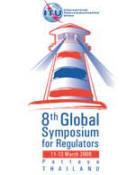Looking left or looking back – just not looking forward
Yesterday, I wrote about the paradox of diverse viewpoints on the internet. In the interest of helping to present you with an alternate perspective, let me tell you about the release of book called “For Sale to the Highest Bidder: Telecom Policy in Canada” earlier this week from the Canadian Centre for Policy Alternatives. In the book, the “S” is written using a dollar sign.
There are a couple excerpts available on-line – the introduction and a piece about the privatization of BCE by the OTPP. From what I have read so far, this book clearly espouses a different view than what you can expect to usually read on this website.
For example, the chapter entitled Strange Bedfellows at BCE asserts the deal may betray a type of comradeship between the teachers’ union and the Bell unions:
As it now stands, we have a bizarre situation where teachers, who are unionized and tend to be progressive politically, find their pension funds used to increase foreign ownership which they likely oppose and which has uncertain consequences for their brothers and sisters in the acquired company. The transformation of the pension funds of workers into just another variety of profit-maximizing firms should be seen as one of the lost opportunities to transform capitalism, at least marginally, toward a human scale.
It is unclear that there is any pseudo-scientific research to back these claims. Are teachers more “progressive politically”? Would teachers choose to have OTPP invest with political motives or be primarily profit driven?
There is no presumption that the employees of such bought-up companies, or anyone other than the select list of the equity fund’s shareholders, benefit from this shuffling of the cards. The increasing prevalence of such activities, which benefit the few at the expense of the many, presumably helps to explain why the overall distribution of income and wealth has worsened in developed countries.
This paragraph ignores the fact that the “select list of the equity fund’s shareholders” is a very large list of current and future teachers. What is the factual basis to throw out a line like “the overall distribution of income and wealth has worsened in developed countries”? Would anyone really prefer to have the distribution of poverty in under-developed countries?
I have not yet spent the $15 plus shipping and handling to be able to read the whole book, although I’m not sure I need that much diversity in my reading diet. With their progressive agenda, I’m surprised that CCPA is chopping trees down to print their book, burning carbon to ship it and deliver it. Why not simply use the web to distribute the material under a creative commons license?
Maybe I’m just waiting to be able to download it for free.


 The ITU is holding its 8th
The ITU is holding its 8th  In the classes I teach at University of Toronto, I try to impart to the engineering students an appreciation of the level of influence played by government policy and regulation. This week, Ottawa again becomes a focal point for the telecom industry in Canada
In the classes I teach at University of Toronto, I try to impart to the engineering students an appreciation of the level of influence played by government policy and regulation. This week, Ottawa again becomes a focal point for the telecom industry in Canada